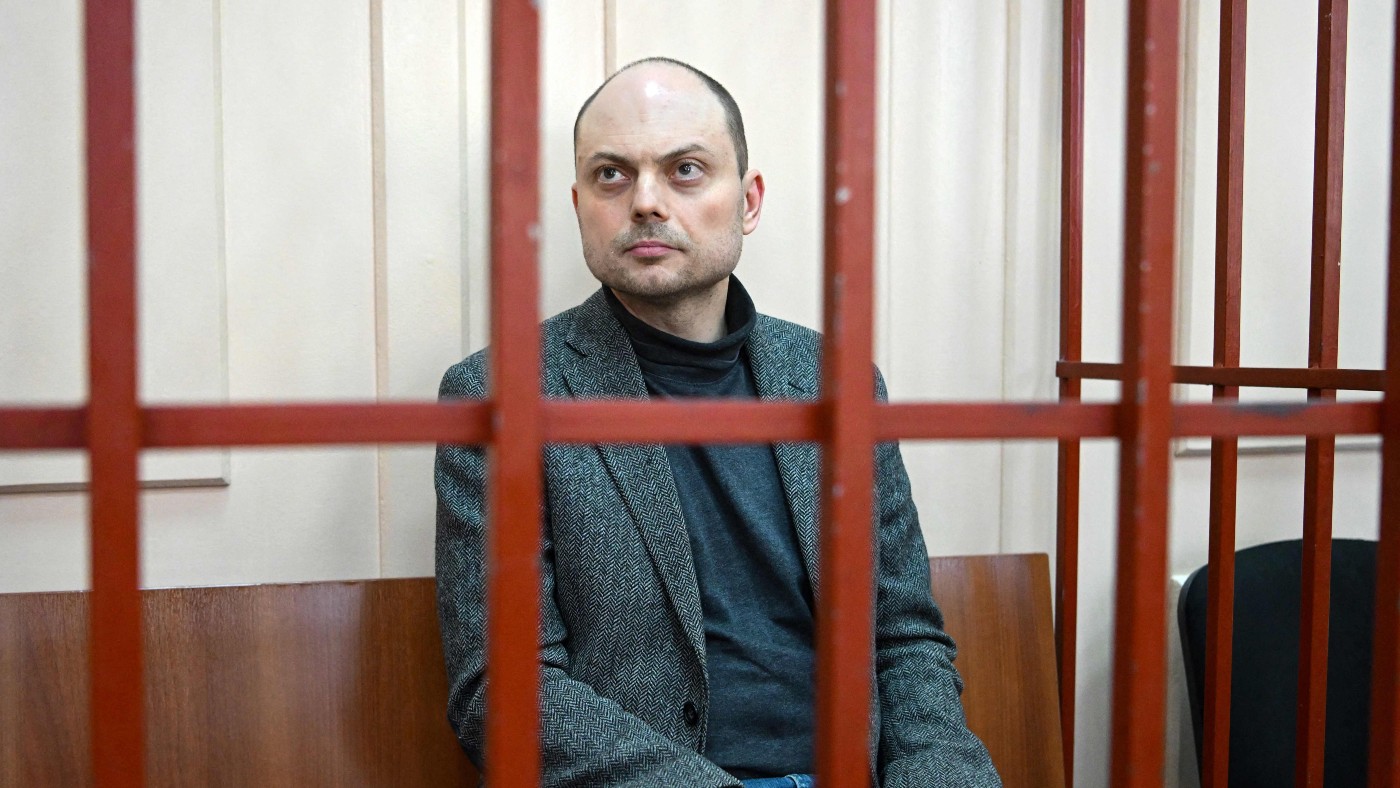Vladimir Kara-Murza, ‘Spymania’ and Putin’s crackdown on dissent
Kremlin has been steadily broadening and intensifying its hunt for internal enemies

A free daily email with the biggest news stories of the day – and the best features from TheWeek.com
You are now subscribed
Your newsletter sign-up was successful
“Traitors and betrayers will get what they deserve.” So warned Russia’s Foreign Ministry following the sentencing of an outspoken critic of the Kremlin to 25 years in prison in April.
The jail term meted out to opposition activist Vladimir Kara-Murza was an “unusually harsh punishment”, said The New York Times, and underscored Vladimir Putin’s “increasing determination to equate dissent with treason”.
Since the beginning of the Ukraine war, hundreds of Russians have been jailed or fined under new military censorship laws.
The Week
Escape your echo chamber. Get the facts behind the news, plus analysis from multiple perspectives.

Sign up for The Week's Free Newsletters
From our morning news briefing to a weekly Good News Newsletter, get the best of The Week delivered directly to your inbox.
From our morning news briefing to a weekly Good News Newsletter, get the best of The Week delivered directly to your inbox.
The Kremlin has been steadily “broadening and formalising its hunt for internal enemies”, said Politico. Russian security services expert Andrei Soldatov told the news site that the Russian state had “decided to sharply expand the ‘list of targets’ for charges of treason and espionage”.
‘Spymania’
Treason cases do not fall under the remit of Russia’s Investigative Committee, but instead are the preserve of the country’s Federal Security Service, the FSB, “making them uniquely secretive”, Politico added. “In court, hearings are held behind closed doors – sheltered from the public and press – and defence lawyers are all but gagged.”
According to The Guardian, experts have equated the intensifying hunt for internal enemies to a “spymania”.
Recent targets include Anatoly Maslov, a 76-year-old professor of aerodynamics who last week became the first of three hypersonic missile scientists to stand trial for treason for allegedly passing secrets to China.
A free daily email with the biggest news stories of the day – and the best features from TheWeek.com
The arrest of the esteemed scientist and two of his colleagues has triggered a backlash among the scientific community at his institute, who published an open letter demanding his release.
“We know each of these [scientists] as a patriot and a sound person incapable of doing what the investigators have accused them of,” wrote dozens of Maslov’s colleagues at the Khristianovich Institute of Theoretical and Applied Mechanics in Novosibirsk.
Treason charges used to be rare in Russia. Between 2009 and 2013, 25 people were tried for espionage or treason, according to Russian court statistics. The frequency of such prosecutions began to increase following the annexation of Crimea in 2014, and has accelerated to an estimated 70 treason cases since last year’s invasion of Ukraine – “and the tempo seems to be picking up”, said Politico.
‘Scientists not spies’
For Maslov, the outlook appears bleak. A source told Reuters that since his arrest last June, the elderly scientist had suffered two heart attacks and spent time in hospital. There are also fears for his two colleagues and for the safety of other scientists across the country.
Experts say the case against Maslov is a microcosm of the growing hunger among Russian security services to bring high-level treason prosecutions.
“None of these scientists are spies,” Ivan Pavlov, a Russian lawyer and expert in espionage and treason cases, told The Guardian. “They are an easy target for the chekists [security services].”
The crackdown may already have cost lives. Valery Mitko, an 81-year-old Russian scientist, died last October while under house arrest on treason charges. And Dmitry Kolker, a scientist implicated in a spy investigation, died two days after his arrest in July while receiving treatment for stage 4 cancer.
“If the regime changes, the war ends, then all this could go away,” Pavlov said. “But until then, they’ll keep jailing old scientists. And killing them. They already have a few on their conscience.”
This article first appeared in The Week’s Global Digest newsletter. Sign up for a preview of the international news agenda, sent to your inbox every Monday.
Arion McNicoll is a freelance writer at The Week Digital and was previously the UK website’s editor. He has also held senior editorial roles at CNN, The Times and The Sunday Times. Along with his writing work, he co-hosts “Today in History with The Retrospectors”, Rethink Audio’s flagship daily podcast, and is a regular panellist (and occasional stand-in host) on “The Week Unwrapped”. He is also a judge for The Publisher Podcast Awards.